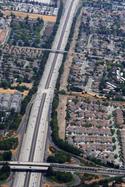You would think an economic development official in Michigan these days would be contemplating either early retirement or seppuku. Yet the feisty Ron Kitchens, who runs Southwest Michigan First out of Kalamazoo, sounds almost giddy with the future prospects for his region.
How can that be? Where most of America sees a dysfunctional state tied down by a dismal industry, Kitchens points to the growth of jobs in his region in a host of fields, from business services to engineering and medical manufacturing. Indeed, as most Michigan communities have lost jobs this decade, the Kalamazoo region, with roughly 300,000 residents, has posted modest but consistent gains. read more »






















